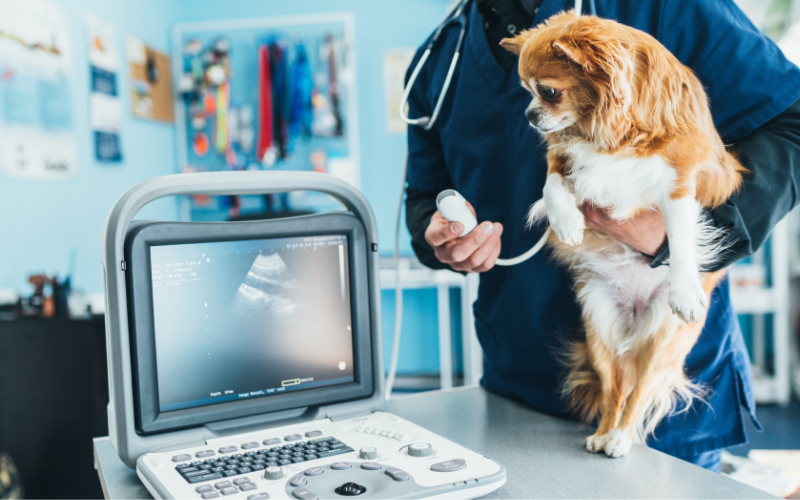Predicting the Future of Animal Hospitals: Services and Technologies
The landscape of veterinary care is continuously evolving, driven by advancements in technology and changing expectations from pet owners. Whether you’re seeking routine care or looking for an emergency dog hospital near you, several key trends are shaping the services and technologies that will define animal hospitals. This article explores these emerging trends, focusing on innovations that are set to transform veterinary care.
Technological Advancements in Diagnostic Tools
The future of animal hospitals will see a significant enhancement in diagnostic tools and technologies. Veterinary ultrasound, for instance, is becoming increasingly sophisticated. Modern ultrasound machines provide high-resolution imaging that allows veterinarians to diagnose internal conditions with greater accuracy. These advancements enable early detection of issues such as tumours, heart disease, and gastrointestinal problems, which can be crucial for effective treatment.
Similarly, other diagnostic tools are evolving. Digital radiography and advanced blood testing technologies are being integrated into animal hospitals to improve diagnostic capabilities. These technologies offer faster results and enhance the precision of diagnoses, leading to better treatment outcomes for pets.
Expansion of Emergency and Specialised Services
Emergency care is a critical component of veterinary services, and the future will likely see an expansion in both the availability and sophistication of emergency services. For instance, emergency vet services in Singapore are expected to include more specialised facilities capable of handling a wider range of urgent situations. As pet owners increasingly seek comprehensive emergency care, animal hospitals are investing in state-of-the-art equipment and specialist training to meet these demands.
Emergency dog hospitals, specifically, are anticipated to feature advanced critical care units equipped with cutting-edge technology to handle severe cases. This includes the implementation of real-time monitoring systems, advanced surgical tools, and dedicated emergency teams trained to provide immediate and effective care.
Integration of Telemedicine and Remote Consultations
Telemedicine is becoming a significant trend in veterinary care, driven by the need for more accessible and flexible consultations. The integration of telemedicine into animal hospitals allows pet owners to consult with veterinarians remotely, which can be particularly useful for routine follow-ups or minor health concerns. This technology facilitates consultations via video calls, enabling vets to offer advice and assess conditions without requiring an in-person visit.
Furthermore, remote monitoring tools are also gaining traction. Wearable devices that track a pet’s health metrics, such as heart rate and activity levels, can transmit data to veterinarians. This real-time monitoring allows for proactive management of chronic conditions and provides valuable insights into a pet’s health status, which can be crucial for making informed treatment decisions.
Enhanced Focus on Preventive Care
Preventive care is expected to become a focal point in the future of animal hospitals. With a growing emphasis on wellness and early intervention, animal hospitals are likely to offer a broader range of preventive services. It includes routine wellness exams, vaccination programs, and nutritional counselling designed to prevent diseases before they develop.
Advanced screening technologies will play a key role in preventive care. For instance, genetic testing and comprehensive health screenings will help identify predispositions to certain conditions, enabling early intervention and tailored health plans for pets. By focusing on preventive care, animal hospitals aim to enhance the overall quality of life for pets and reduce the incidence of serious health issues.
Development of Personalised Treatment Plans
The future of veterinary care will also involve more personalised treatment plans tailored to the specific needs of individual pets. Advances in medical research and technology will allow veterinarians to develop customised treatment strategies based on a pet’s unique health profile. It includes personalised medication regimens, targeted therapies, and individualised nutrition plans.
Conclusion
The future of animal hospitals is poised to be shaped by significant advancements in technology and a growing emphasis on comprehensive, personalised care. Innovations such as enhanced diagnostic tools, expanded emergency services, telemedicine, preventive care, and personalised treatment plans will redefine the standards of veterinary care. As these trends continue to develop, animal hospitals will be better equipped to provide high-quality, effective, and accessible care for pets. By staying ahead of these trends, veterinary professionals can ensure that they meet the evolving needs of pet owners and their beloved animals.
Contact Paws & Claws today for more information.

